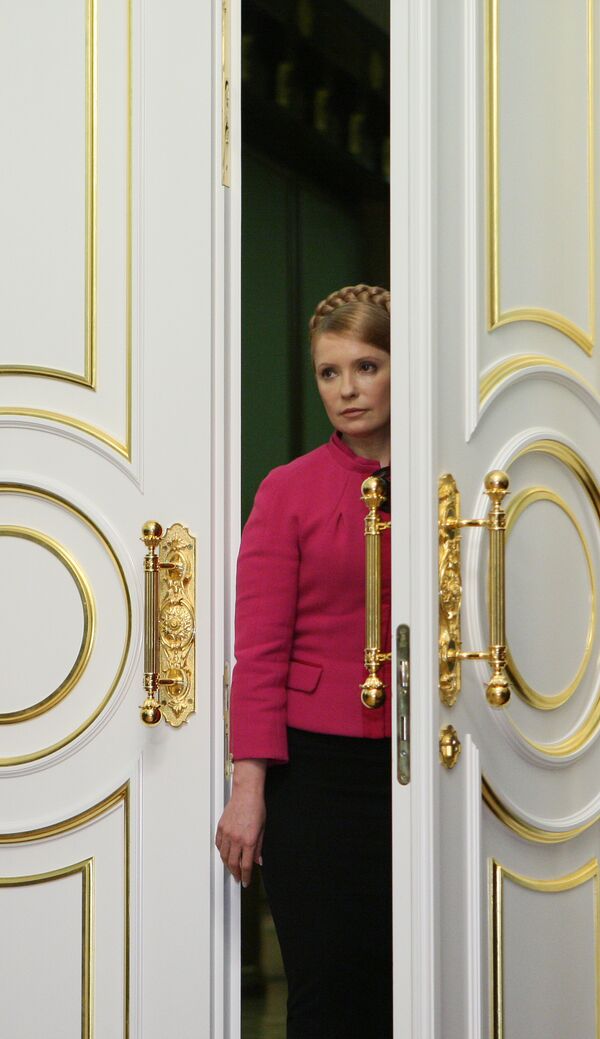MOSCOW. (RIA Novosti political commentator Andrei Fedyashin) - Ukrainian Prime Minister Yulia Tymoshenko has just spent a couple of days in Bonn, Germany, with her European fellow party members, taking part in a conference of the European People's Party (EPP).
This is the European Parliament's biggest association, which consists of 74 parties from 39 countries, including the 27 EU countries. Tymoshenko's Batkivshchina (Fatherland) is an associate member of the EPP, which unites right-center and conservative parties.
President Viktor Yushchenko, who also belongs to the right-center and conservatives, was also invited but he did not show up. EPP Secretary General Antonio Lopez Isturiz said Yushchenko did not explain his absence in any way.
Obviously, Yushchenko feels hurt by the entire European Union and its affiliates.
In early December the Europeans virtually stabbed him in the back by ruining his hopes even for Ukraine's eventual association with the EU, not to mention membership. At the recent EU-Ukraine summit in Kiev in early December Brussels did not even discuss with Kiev the signing of an agreement on associate membership.
Yushchenko's Ukraine looks suspended in its relations with the EU. Diplomats in Brussels and other major European capitals do not hide the impression that nobody in Greater Europe is willing to support any of the candidates in the January 17 presidential elections.
In Brussels' view, events in Ukraine are an extraordinary and dangerous phenomenon. EU Ambassador to Kiev Jose Manuel Pinto Teixeira talked to journalists about Ukraine the other day: "The country today is in many aspects like 20 years ago." This is not a very flattering description. Usually ambassadors do not make such open statements about the country in which they serve. Apparently, Brussels is irritated by the developments in Ukraine if it openly neglects elementary diplomatic ethics.
In Europe's opinion, Yushchenko has already turned into an unpleasant and importunate figure. He continues to promote the country's self-proclaimed status as a European state. In this context Pierre Lellouche, secretary of state for European affairs in Nicholas Sarkozy's cabinet, announced the other day that "Europe wants a return to the rule of law and an end to corruption," adding implacably that "electoral promises must not be financed with money from the international community, from the IMF or European taxpayers."
The IMF loaned $16.4 billion to Ukraine but immediately froze it when the Ukrainian parliament voted for greater spending on social needs. The European Bank for Reconstruction and Development (EBRD) blocked the transfer of a $300 million loan to Ukraine for the lack of any economic reform in Ukraine. Europe is still hoping to adapt Ukraine's political structure to European standards and perform a genetic self-identification, but the mutations in Kiev are invariably ruining these attempts.
The EU is not very concerned about the possibility of Ukraine falling into Moscow's embrace if Viktor Yanukovych, the main contender for president, wins the race. It merely has certain political concerns on this score. Europe understands well that by virtue of its geopolitical location Ukraine is simply destined to be a buffer between the EU and Russia. No tectonic processes can move Ukraine from its place. And Russia will always remain a heaven-sent market that Ukraine will supply with its industrial and agricultural goods which either do not meet European standards or are not needed in the EU with its excess of food. Without Russia the Ukrainian economy will find it difficult to survive. A poor country with 60 million people is hardly of any interest to Europe.
The opinions expressed in this article are the author's and do not necessarily represent those of RIA Novosti.

